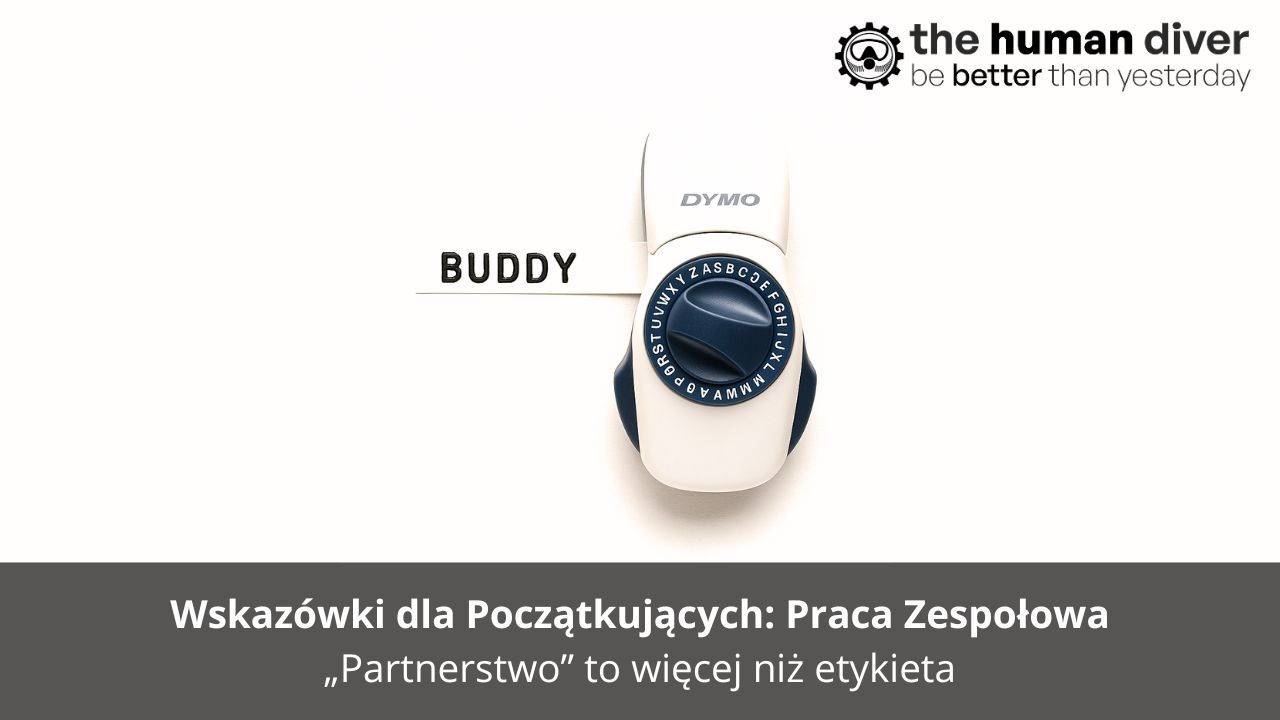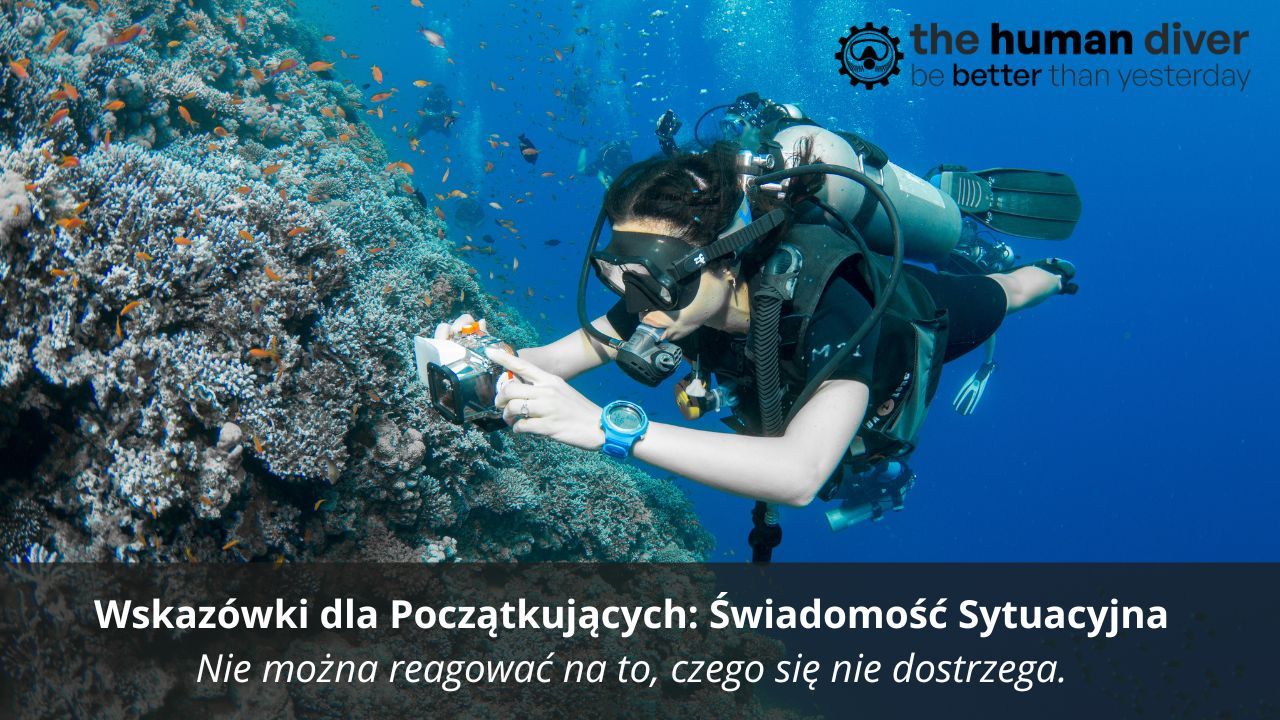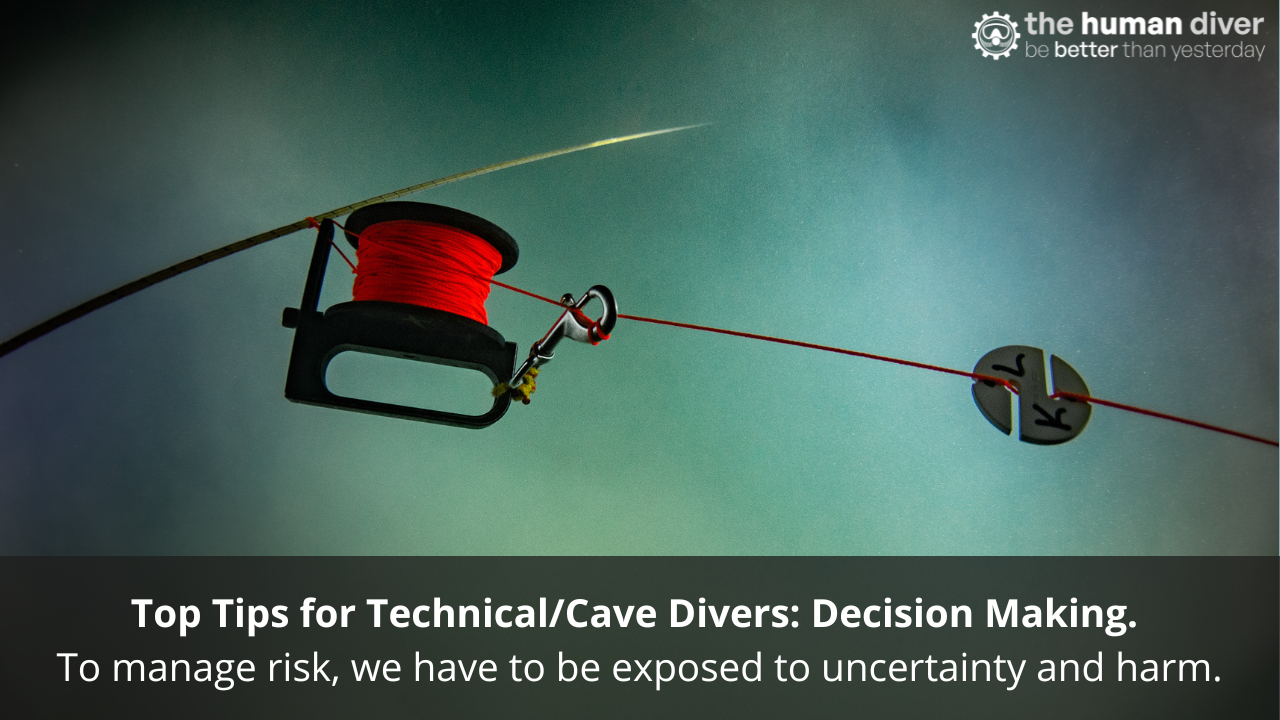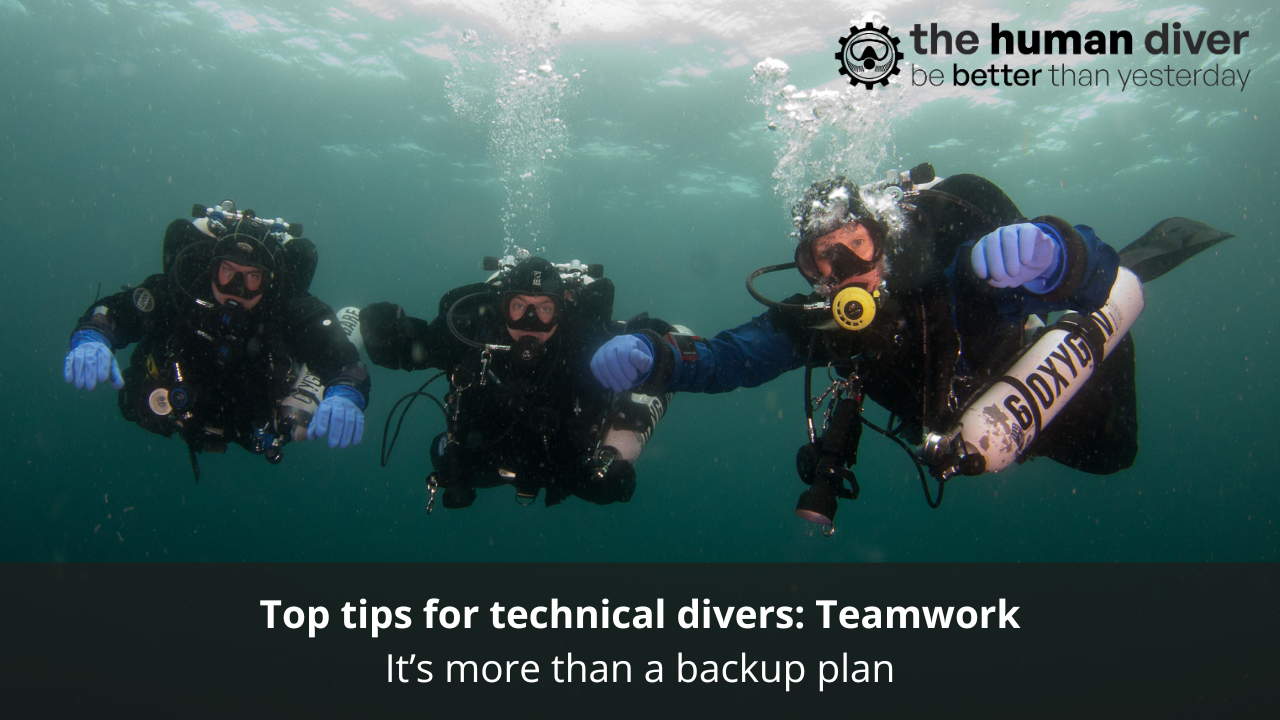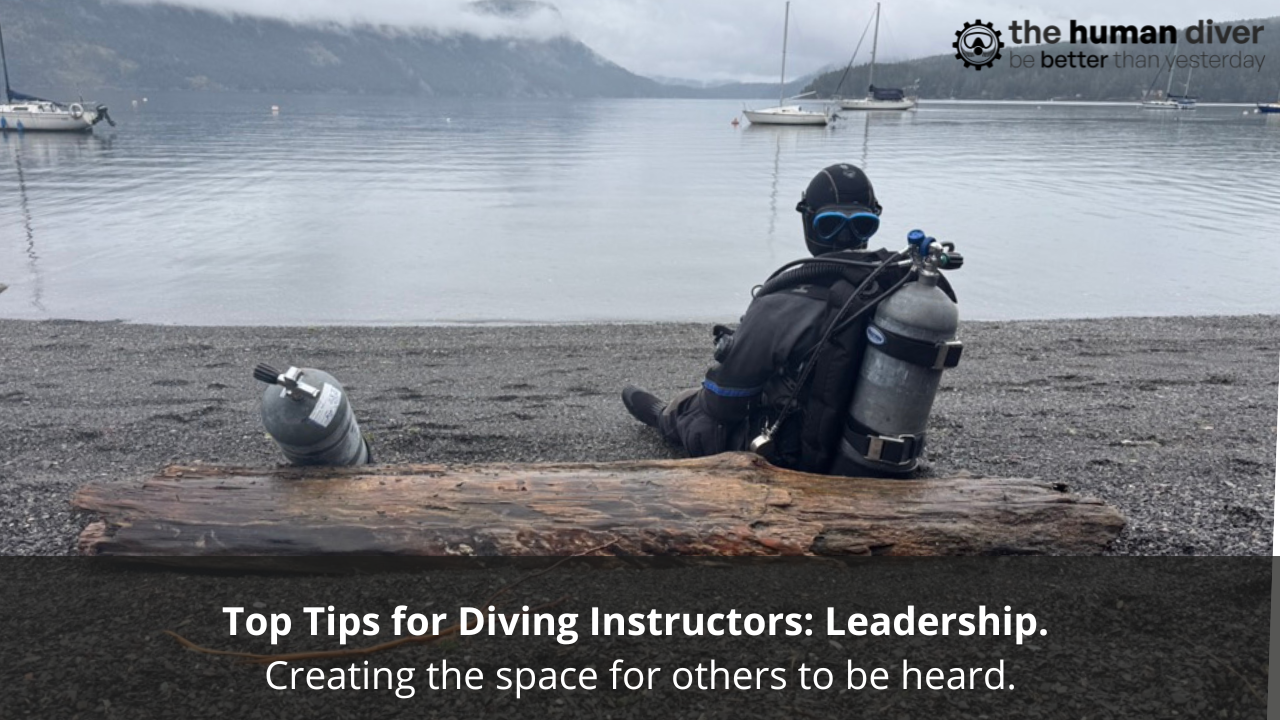
Psychological Consequences of a Diving Accident.
Dec 31, 2023Experiencing prolonged anxiety, psychological, or emotional problems after a traumatic experience is relatively common. In most cases, individuals recover, and the issue resolves naturally. However, for some, this reaction can transform into psychological trauma or what is known as post-traumatic stress disorder (PTSD).
Divers occasionally face challenging events or circumstances such as decompression sickness, barotrauma, getting lost or stuck underwater, situations related to the loss of breathing gas, rapid emergency ascent, etc. Therefore, it can be assumed that some may be affected by diving-related trauma based on their experiences or witnessing such events.
Examining the psychological impact of diving incidents is essential for several reasons. Lack of proper assistance and care for the psychological well-being of the affected individual or those involved in the accident can impact their overall well-being, social functioning, and decisions regarding future diving. Individuals who have suffered may experience reduced ability to cope with diving-related stress during subsequent dives, leading to panic and posing a threat to themselves and others. Divers with high levels of anxiety may be more prone to accidents after a previous traumatic incident.

Is post-traumatic stress disorder or trauma related to diving a common problem?
The short answer is: we don't know how common this phenomenon is in diving. Reports of diving incidents, such as those compiled by Divers Alert Network and other organizations, show that accidents do happen. These reports classify incidents based on the type of the ultimate cause, such as gas supply problems, equipment issues, or missed decompression stops. Classifications also consider the type of physical injuries or illnesses, such as barotrauma or decompression sickness, fractures, or cardiac arrest. Psychological injuries are not reported. Reports usually focus on the incident, rescue actions, and immediate medical assistance. Long-term observations are not conducted. Individuals who have suffered a diving accident have access to medical assistance, but support for psychological trauma related to the incident is often neglected. In most cases, they may not even be aware that such help might be needed, and they may not know where to seek it. In the case of psychological disorders, the impact of a traumatic event is not always immediately visible. Anxiety during and after the incident is a normal reaction, and psychological diagnosis might be delayed, especially as this information does not contribute to diving accident statistics. The knowledge of divers and medical professionals in this area is also limited.
In many sources, the rate of post-traumatic stress disorder after road accidents is estimated to be around 10% to 30%. It is challenging to conclusively compare diving to driving when considering issues such as risk, cognitive abilities, and endurance. While there are some similarities, there are also significant differences. Diving typically occurs in more remote and isolated locations than most road accidents. Factors that may increase the perception of threat include darkness, depth, prolonged stress during stops, anxiety, discomfort due to low temperatures, decompression burden, etc.
A significant portion of diving accident victims (between 25% and 50%) experiences psychological effects even a year after the incident. This has significant implications for their health, decisions to return to diving, safety in subsequent dives, as well as social relationships and functioning in the non-diving world (Trevett, Peck & Forbes, 2010).

Studies conducted in a hyperbaric chamber in the Orkney Islands, one of the world's most famous wreck diving locations, analyzed the psychological impact of accidents on recreational divers. The study observed divers using the chamber for two years due to injuries related to diving, such as decompression illness, barotrauma, non-fatal drownings, marine stings, missed decompression stops due to loss of buoyancy control or lack of gas supply. The study analyzed reported trauma symptoms in (a) diving accident victims, (b) their diving partners, and (c) other group members who were not (or to a lesser extent) involved in the incident. All were measured at 3 months, 6 months, and 12 months after the diver's contact with medical care. Victims reported significantly more symptoms than their partners or individuals in the control group. It is estimated that 25% to 50% of divers experience PTSD symptoms after accidents. It is essential to note that this does not mean that many divers are diagnosed with PTSD. This is rather the number of divers who reported certain psychological trauma symptoms (Trevett, Peck & Forbes, 2010).
The presented study was conducted on individuals diving in challenging conditions in northern Scotland. These individuals performed dives at significant depths, using dry suits, often employing advanced technical diving methods. Additionally, the analysis included divers who went to a decompression chamber for medical assistance. Therefore, the results of these studies cannot be generalized to the entire diving community. However, it does not mean that trauma related to a diving incident cannot occur in warm and clear waters for recreational divers. Post-traumatic stress may occur without any physical injuries or in cases where events did not lead the diver to seek medical help.
The fact that PTSD is not diagnosed in divers does not mean that this syndrome has not developed in them. At the same time, it is worth noting that not all individuals suffering from and experiencing the consequences of traumatic events develop post-traumatic stress disorder. This means that, even though divers may have similar or partial symptoms, many of them do not have sufficient symptoms to be formally diagnosed. The inability to definitively diagnose clinical post-traumatic stress disorder does not mean that individuals involved in a diving accident are not burdened by it and do not experience psychological consequences.
Trauma after diving accidents
Trauma can depend on the context, and if the event occurred underwater, triggering factors may be present during diving. Such factors include sudden loss of visibility, losing or separating from a diving partner, uncontrolled buoyancy changes, breathing problems, etc. When divers decide to continue diving, unresolved psychological trauma can lead to an increased risk of accidents. After a traumatic experience, any stimuli that remind us of the negative experience can trigger trauma again. This leads to problems with arousal regulation (stress, anxiety, anger, or conversely, numbness and detachment). Experiencing such a reaction underwater is challenging in itself, and even slight anxiety during subsequent dives can lead to strong stress. Information related to trauma remaining in the nervous system can become a problem in the future, even if symptoms do not reach the threshold for PTSD.
Studying the psychological impact of diving accidents can contribute to enhancing the safety of divers and their dive partners. Divers who have been involved in accidents may experience a reduced ability to cope with the stress associated with diving during subsequent dives, making them more prone to panic and posing a threat to themselves and others. Divers with high levels of anxiety may be at greater risk of accidents following a previous traumatic incident.

People naturally cope with distressing events. The study shows that divers reported fewer symptoms over time. However, there are cases where the experience of an adverse or distressing event can linger in our minds. Occasionally, it may also trigger previous disturbances. If these issues haven't been addressed through rest, time, conversation, and natural processing, they can lead to various consequences. Trauma can become very burdensome, especially when experiencing grief, shame, guilt, or anger. In some cases, this may lead to giving up diving, which can be a significant loss, especially when diving is part of a person's identity and social life.
Research on the psychological impact of injuries during sports and recreational activities indicates their particularly profound effect. This may be due to the fact that such activities are often used as a method of coping with stress, thanks to relaxation and mood improvement effects. Therefore, the loss of a sports activity can lead to a decrease in mood and overall psychological discomfort. Moreover, for many divers, their social life and circles of friendships are closely linked to active participation in diving, and the inability to continue this activity will result in a significant limitation of social activity.

Psychological aspects of adverse events in the learning process
There is a significant impact of stress on how divers learn from experiences. After an unsuccessful dive, one of the best ways to cope with stress is to learn something that will help us in the future. However, while an adverse event can serve to improve our awareness, when there is unresolved trauma, there are blocks in learning. Increased reactivity of our nervous system can make divers too stressed to effectively draw conclusions and learn new skills. Unpleasant experiences will cause resistance to the extent that it will be difficult for us to gain the right perspective. Avoiding thinking about what happened or discussing the event to understand what went wrong does not allow for the proper processing of the traumatic event. Understanding the mechanisms and situations from different perspectives, the role of the diver in the event, and learning the causes and methods of prevention significantly contribute to better coping with trauma.
The pressure exerted by the environment in diving groups can further discourage divers from openly discussing accidents and the fears arising from them. This can have potentially dangerous consequences. Lack of psychological safety and a culture of blame, lack of willingness to understand the causes and accept limited agency will lead to deepening feelings of isolation, loneliness, shame, embarrassment, and guilt. This will contribute to additional resistance to dealing with difficult experiences. The process of blaming not only keeps people stuck in trauma but also hinders progress in improving actual safety.
The consequences of such behavior can be far-reaching and not limited to diving itself. Nightmares, intrusive thoughts, feelings of guilt, disrupted sleep, and the inability to rest are just some of the possible consequences. Over time, this can lead to issues such as heightened levels of anxiety and depression. Avoidance is not only common in cases of PTSD but is a diagnostic feature. People avoid conversations, leaving the house, and contact with others. They avoid their own experiences in many creative ways. Self-medicating with alcohol or drugs is not uncommon, and cases are known even in the diving community.
Contrary to what instructors and colorful promotional brochures tell us, diving is a high-risk sport. The occurrence of adverse events and accidents is inevitable. They should be seen as part of diving and not necessarily as a sign of poor diving practice or incompetence but as an opportunity for learning and drawing conclusions. When we accept that we will never reduce the risk of an incident to zero, we can start planning how to limit its effects when an incident does occur.
 Many divers claim to accept the "risks" associated with diving. In such situations, I always ask what risks they are referring to and how they perceive them. The problem with the lack of reports and statistics, including psychological injuries, shows that we have no idea about many risks and the likelihood of their occurrence. Knowledge of how to deal with traumatic experiences and how to emerge from them can be an important skill for divers.
Many divers claim to accept the "risks" associated with diving. In such situations, I always ask what risks they are referring to and how they perceive them. The problem with the lack of reports and statistics, including psychological injuries, shows that we have no idea about many risks and the likelihood of their occurrence. Knowledge of how to deal with traumatic experiences and how to emerge from them can be an important skill for divers.
Summary
When we experience a physical injury that causes pain, tearing, or weakening of muscles, physiotherapy and rehabilitation are standard procedures. Similarly, in psychology, there are therapies that deal with emotional pain, tension, or weakness and build strength from them. There are proven approaches to injuries caused by single events, as well as long-term stress. Although diving accidents are not often cited as causes of trauma, disturbing, adverse events in diving can be treated as such.
Divers should know how to deal with traumatic experiences and regain balance after them or where to seek help. There is not too much information available on how to do this. The number of specialists familiar with the specifics of diving and the diving environment, dealing with supporting the treatment of traumatic events, is very limited.
People who have participated in or witnessed diving accidents should be informed about the likelihood of psychological problems occurring and their possible duration when discussing the incident, and they should also receive advice on how to minimize them.
As a diving instructor dealing with diving accidents and simultaneously a psychologist, I am aware of how important it is to provide proper psychological preparation for divers and ensure their comfort and well-being. Adequate support for those affected will contribute to their faster recovery and return to diving. A positive attitude and support also influence the better recovery of individuals who have suffered physical injuries due to, for example, decompression sickness. It is worth remembering that an accident does not have to happen for us to take care of our psychological comfort. If divers feel anxiety, fear, a sense of isolation, or withdrawal related to diving, they can also seek support. Our mind is most responsible for our safety underwater and the decisions we make. It's worth taking care of it.
If you feel the need to talk about emotions related to a diving incident or know someone who may need such help and don't know where to turn, feel free to write to me or call me. I will certainly try to help.
In writing this post, I relied on the following sources:
Reakcje psychologiczne i nurkowanie, opis terapii
The psychological impact of accidents on recreational divers: A prospective study
RISK OF SLEEP DISORDERS IN PATIENTS WITH DECOMPRESSION SICKNESS: A NATIONWIDE, POPULATION-BASED STUDY IN TAIWAN -
- Psychiatria Danubina, 2019; Vol. 31, No. 2, pp 172-181 https://doi.org/10.24869/psyd.2019.172
A twelve-year longitudinal study of neuropsychological function in non-saturation professional divers

Andrzej is a technical diving and closed-circuit rebreather diving instructor. He works as a safety and performance consultant in the diving industry. He holds a degree in psychology with a specialization in social psychology and safety psychology. His main interests in these fields revolve around human performance in extreme environments and building high-performance teams. Andrzej completed postgraduate studies in underwater archaeology and gained experience as a person responsible for diving safety in scientific projects - DSO. Since 2023, he has been a Human Factors instructor, leading the Polish branch of The Human Factors. www.podcisnieniem.com.pl
Want to learn more about this article or have questions? Contact us.

